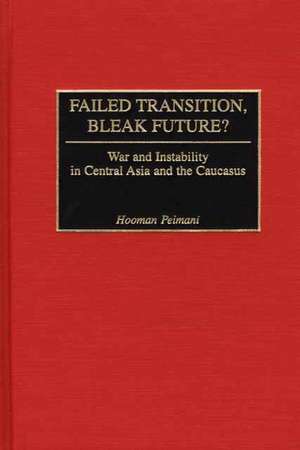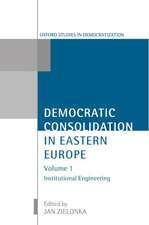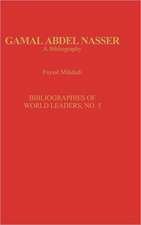Failed Transition, Bleak Future?: War and Instability in Central Asia and the Caucasus
Autor Hooman Peimanien Limba Engleză Hardback – 29 apr 2002 – vârsta până la 17 ani
Preț: 494.77 lei
Preț vechi: 687.02 lei
-28% Nou
Puncte Express: 742
Preț estimativ în valută:
94.68€ • 101.24$ • 78.94£
94.68€ • 101.24$ • 78.94£
Carte tipărită la comandă
Livrare economică 17 aprilie-01 mai
Preluare comenzi: 021 569.72.76
Specificații
ISBN-13: 9780275975043
ISBN-10: 0275975045
Pagini: 176
Dimensiuni: 156 x 235 x 18 mm
Greutate: 0.33 kg
Ediția:New.
Editura: Bloomsbury Publishing
Colecția Praeger
Locul publicării:New York, United States
ISBN-10: 0275975045
Pagini: 176
Dimensiuni: 156 x 235 x 18 mm
Greutate: 0.33 kg
Ediția:New.
Editura: Bloomsbury Publishing
Colecția Praeger
Locul publicării:New York, United States
Notă biografică
HOOMAN PEIMANI is an independent consultant with international agencies in Geneva, Switzerland, and does research in international relations. His earlier writings include The Caspian Pipeline Dilemma: Political Games and Economic Losses (Praeger, 2001) and Nuclear Proliferation in the Indian Subcontinent: The Self-Exhausting Superpowers and Emerging Alliances (Praeger, 2000).
Cuprins
IntroductionGeneral Overview of the Caucasian and the Central Asian Countries at the Time of IndependenceOverall Situation in the Caucasus and Central Asia a Decade after IndependenceRise of AuthoritarianismWorrisome TrendsConclusionBibliographyIndex














